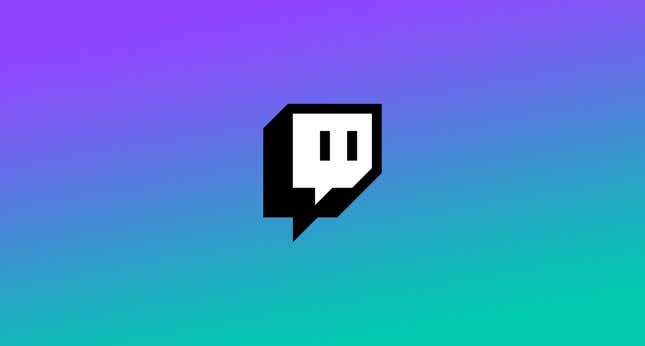
Over the past few days, you might have seen the #TwitchDoBetter hashtag pick up steam on social media networks like Twitter. You might’ve further wondered why it’s popping now, and what it’s all about. Twitch is a company, after all, and companies can always, always do better. But this recent campaign is specifically meant to shine a light on how the platform continually lets its marginalized creators down.
Much of the campaign has rallied around a February 2018 tweet from Twitch, publicly requesting accountability. “Please watch us closely and hold us accountable,” the company wrote. “This first update clarifies our guidelines, but we know we’ll be judged on how we enforce them.”
“It’s so heartbreaking to see all the stories of marginalized people on the platform being attacked for something outside of their control like their skin color, gender identity, sexual preference, or otherwise,” the streamer Rek It, Raven!, who originated the hashtag, told Kotaku via email. “We shouldn’t have to feel fear to press ‘go live.’”
Read More: Twitch Gives Trans, Black, And Disabled Streamers Tags, But Not Protection
In the years since, Twitch streamers—particularly queer streamers and streamers of color—have continued to regularly suffer harassment campaigns, follow-botting, and widely orchestrated “hate raids.” In some cases, blocking an offender means they’ll just create a bunch of other accounts and continue the harassment, on account of how easy it is to sign up for Twitch. And there are few protections in place to prevent troll-approved tactics like the persistent recording of streams via IP.
Oh, and Twitch also takes a ton of the revenue.
Twitch, which was purchased by Amazon in 2014 for a hair under $1 billion, splits subscription revenue evenly with creators: half goes to the streamer, half goes to the platform (that’s owned by one of the wealthiest companies on the planet). But streamers say those scales should tip, particularly if Twitch neglects to implement tools or policies designed to protect its most marginalized community members. (When reached for comment by Kotaku, a Twitch representative did not immediately have answers about whether or not the company plans to change its policies.)
“Currently, the safety tools on the platform are extremely underwhelming,” Jess Go, a Twitch streamer, told Kotaku via email, noting that Twitch’s current crop of moderation tools actually end up flagging and cutting “a lot more of my community celebrating themselves and their sexualities than it does any actual slurs or problematic language.“
As a result, “Many marginalized creators find it better to turn off the currently available Twitch tools and just have their own community moderate their spaces,” Go said. “If we are doing all this additional work, why is Twitch taking such a large portion of the profit we generate?”
Ceddy Lopez, a partnered Twitch streamer, told Kotaku via email that Twitch would ideally offer creators a 70/30 split—as in, Twitch taking 30 percent of sub revenue. That figure is echoed across the #TwitchDoBetter hashtag, though some say it should be as high as 80/20.
Crucially, Twitch could make it more difficult for users to create new accounts by requiring new users to sign up with a phone number. That way, repeat offenders couldn’t just whip up a ton of new accounts to circumvent bans and blocks. Many steamers suggest Twitch could also implement a system that automatically blocks any form of hate speech whatsoever, speech that should already be blocked on a platform-wide level in the first place.
Raven suggested adding two-factor authentication could help big time, as could an option allowing creators to limit the age of accounts that are allowed to respond in chat. What’s more, Twitch could inform streamers of incoming raids via notification. Moderators could then accept or deny the raid, potentially stamping out bad-faith campaigns before they even get started.
In a true commitment to fostering a diverse platform, Lopez said, Twitch could ban streamers who use their platform to harass other streamers. “Twitch isn’t going to close down if a couple of problematic streamers are chopped as an example.”
“The answers are there and it seems like they can be done without breaking the bank,” Raven said. “There needs to be conversation with people at Twitch to really involve people affected so we can come up with solid conclusions for change.”
Read More: Twitch Will Finally Tell Streamers Why They Got Banned
“I have experienced tons of harassment as an Asian, flamboyant, and outspoken man, yet I will still continue to stream there because it feels like a home to many of us,” Lopez said. “We sincerely want a platform for us to feel proud of.”
Update, 3:22 p.m., 8/10/2021: Added comment from Rek It, Raven!